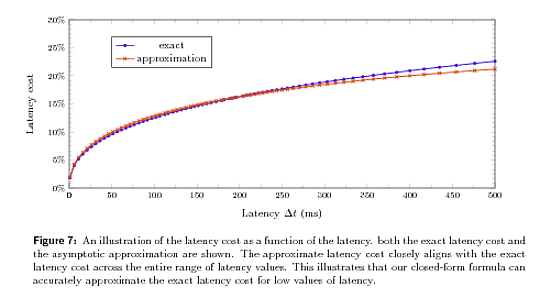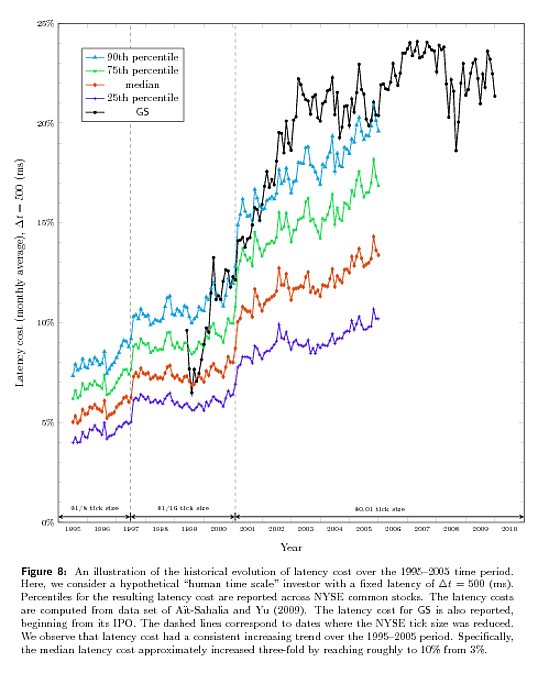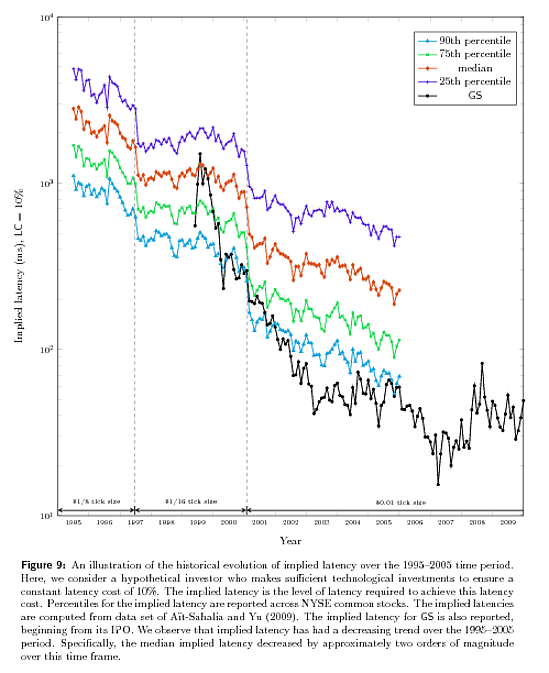I am looking to evaluate the hypothetical advantage one trading system has over another in terms of the possible returns given their latency.
Irene Aldridge wrote a piece (How Profitable Are High-Frequency Trading Strategies?) which describes how to relate holding time to Sharpe ratio, although her approach seems somewhat arbitrary.
As I am investigating the effect of latency on market making strategies, I have modified this approach to use the maximal spread in a time frame to be the return and the spread's variance as risk (as the spread proxies for the risk of the market maker).
Are there any other metrics I can make use of? Does my approach thus far seem reasonable?



